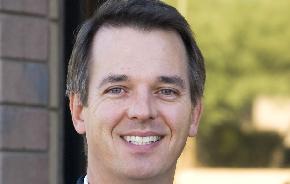How does a residential lender break into the commercial market? Ask the folks at Countrywide Financial, the Calabasas, CA-based residential originator/securitizer, and they’ll tell you to get the right team. That’s exactly what they did when they piped aboard the folks at Sausalito-based Coastal Capital and launched, in April of this year, Countrywide Commercial Real Estate Finance. Of course, Coastal’s management team, Boyd Fellows and partners Chris Tokarski, Stewart Ward and Warren de Haan—-who have been together on and off and in one venue or another since the late 1980s (most notably at Nomura in its heyday)–weren’t the only assets the lender started with. You also have to consider the firm’s residential track record, which includes $237 billion in production in the first eight months of 2004 alone. In late August, EVP Fellows spoke exclusively with GlobeSt.com about the progress made so far . . . and what lies ahead.
GlobeSt.com: By this time next year, where do you expect CRF to be?
Fellows: We expect to close roughly $150 million in loans in October and to achieve a comparable flow in November and December. Our goal next year is to be in the Top 10 in CMBS, which means we should do a little north of $2 billion.
GlobeSt.com: In issuance?
Fellows: We’ll start by contributing loans to other deals. We won’t be an issuer until late in the year.
GlobeSt.com: In terms of infrastructure, what exactly did Coastal bring?
Fellows: There were three distinct disciplines that were necessary for Countrywide. One was people in a leadership position who understand the bond markets, the structures, the trading and the whole capital-markets aspect of finance. Frankly, there aren’t that many people in the US skilled enough to run a leading business in that space. They needed people that can handle the credit-evaluation work, the underwriting and property analysis. And they needed people who understand the process of originating loans at an institutional level, to interact with mortgage bankers and REITs and other large organizations, and that’s a specialized business. Each of these three categories is highly specialized and virtually everyone in the industry lives in New York. Countrywide’s overriding criteria was that the individuals running these businesses needed to be inside headquarters in Calabasas.
GlobeSt.com: But can’t those disciplines be managed from anywhere?
Fellows: Countrywide is tight, personal, almost family. While our originators need to be based regionally, the key executives need to be in Calabasas and frankly people who would be willing to relocate aren’t the leaders in their field. Coastal was the perfect choice because we offered a standalone CMBS origination team and we were located in California. More important, in terms of due diligence, we were among the most active players, with large, complex loans accomplished for 85% or 90% of the lenders on the street who used us regularly as their overflow due-diligence shop. Finally, the four of us have worked together for roughly 10 years, and that works better for Countrywide than assembling the team piecemeal. In one package they got the engine and the leadership for the various components.
GlobeSt.com: What remains to be put in place?
Fellows: We’re planning to hire more underwriters in New York, Chicago and L.A. and next year we intend to add two more senior originators in New York. We’re also looking to hire originators in Fort Lauderdale and Dallas–two markets we need to focus more on.
GlobeSt.com: What products are you offering?
Fellows: Today, we’re doing fixed-rate loans of $2 million and above and floaters $25 million and above, both in virtually all product types, and mezz, B-pieces and everything below the first mortgage. Our business plan with respect to those products is to principal the mezz and redistribute it to the ever-growing mezz market that’s out there. It’s a huge part of this industry today and a driving force behind who wins a transaction. Once we get our engine fully running, we also want to develop new products that meet a broader range of client demand.
GlobeSt.com: So, in short, it is possible to make the hop from the residential side to the commercial.
Fellows: When we started talking with Countrywide, they asked us our vision for executing this model, and we told them you have to do what you say you’re going to do. You have to make the closing a great experience. You have to make sure the legal documentation is as readable as possible. Their reaction was that that’s how they run their business. The commercial model is very analogous to the residential model. We want to be regionally located and have direct customer interface. There are many similarities.





 Copyright © 2024 ALM Global, LLC. All Rights Reserved.
Copyright © 2024 ALM Global, LLC. All Rights Reserved.











